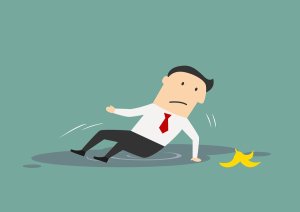News & Insights
Liability in Slip and Fall Accidents
Most people know that a car accident in Annapolis can result in a successful claim for damages by an injured party. However, if someone is hurt after falling on another’s property , the property owner may be responsible for any injuries. Lawyers who work in premises liability handle cases from individuals who are hurt on dangerous stairways, icy sidewalks, unsafe construction sites, poorly lit areas, and badly maintained roadways. Continue reading to learn more about how an attorney determines liability after a slip and fall accident takes place. 
Negligence
Every property owner is obligated to maintain reasonably safe conditions on their properties for the wellbeing of anyone who visits. However, individuals who are guests are also obligated to exercise reasonable care when walking on another’s property to protect their own wellbeing. While only a personal injury lawyer can analyze the specific facts of your case, a property owner is generally legally liable for any injuries resulting from dangerous conditions on his or her property. Common examples of dangerous conditions include wet or slippery areas and badly maintained buildings or sidewalks.
Causation
As lawyers are quick to point out, a property owner is only liable if the unsafe conditions caused injury. For example, a landlord may fail to maintain a building stairwell by refusing to replace bannisters or missing steps. But if someone is injured because he or she is intoxicated and attempted to leap down an entire set of stairs, the landlord’s negligence clearly did not cause any resulting injury.
Injury
Finally, for a person or company to be liable for a victim’s slip and fall, there must be a documented injury. While a brain or spinal cord injury is obviously a serious health crisis, property owners are also liable for minor ankle sprains and emotional or psychological pain. For a successful personal injury case, a victim and his or her personal injury lawyer must also seek monetary damages to compensate for expenses arising from the injury.
